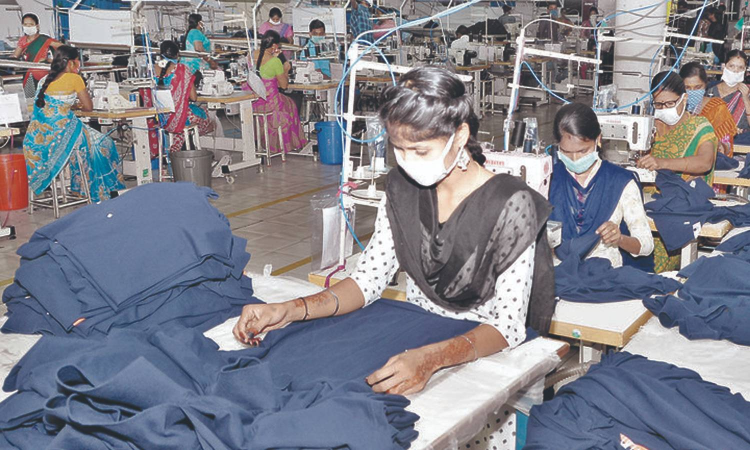US Tariff Woes: Cotton duty relief till Dec big relief to textile sector
Announcing the decision, the Union Finance Ministry stated that the extension was intended to ensure a better availability of cotton for mills and to support exporters in the current global environment.

Representative image
CHENNAI: The Union government has extended the temporary exemption on cotton imports up to December 31, 2025, in a move that offers crucial relief to the textile industry facing volatile global cotton prices and mounting export challenges.
The exemption, which was originally valid from August 19 to September 30, was extended following appeals from textile producers nationwide.
Announcing the decision, the Union Finance Ministry stated that the extension was intended to ensure a better availability of cotton for mills and to support exporters in the current global environment.
Officials noted that imported cotton is currently five to seven per cent cheaper than domestic varieties, making it attractive for manufacturers who are struggling with rising costs. The additional three-month window will allow mills to plan shipments more efficiently, as importing consignments often requires more than a month for delivery.
Industry leaders have broadly welcomed the announcement. “With the duty-free extension, imports could hit a record 4.2 million bales this year. Strong imports are likely to continue into the first quarter of next year as well,” said Atul Ganatra, president of the Cotton Association of India (CAI). He added that the availability of imported cotton is expected to ease price pressures during dia’s harvest season.
The CAI’s latest statistical report highlighted the increasing importance of imports. It estimated the total cotton supply through July at 374.43 lakh bales, including 33 lakh bales of imports. For the season ending September 30, total supply is projected at 389.59 lakh bales, with domestic consumption revised upward to 314 lakh bales.
Exports are placed at 18 lakh bales, while the closing stock is forecast at 57.59 lakh bales. The report emphasised that imports will be necessary to balance demand and sustain mill operations, particularly in southern states where cotton production is relatively limited.
From TN, home to India’s largest textile clusters, the industry expressed cautious optimism. “The extension gives our mills much-needed breathing space. Without it, we would have faced a supply squeeze at a time when export orders are under strain. Now we can source better-quality cotton from Brazil, Australia and the US and ensure smoother operations,” said K Selvaraju, secretary general, The South India Mills’ Association (SIMA).
The industry has also sought specific relief measures: a two-year grace period to repay loans, extension of emergency credit support with interest subsidies, prolonging export concessions for five more years, enhanced duty drawback and RoSCTL/RODTEP benefits, and assured availability of synthetic cotton at global prices. With such measures, the industry is confident of achieving a textile trade target of USD 350 billion, including USD 100 billion in exports.
Economist and Supreme Court advocate M Sathya Kumar said the move would help counterbalance the impact of external shocks. “The US is India’s largest market for garments. With Washington recently doubling duties on several Indian exports, our manufacturers are under pressure. By lowering raw material costs, this duty exemption will help exporters remain competitive in a difficult global market,” he told DT Next.
Textile exporters also highlighted the importance of predictability in government policy. “Large shipments require forward planning. The earlier September deadline was too short to secure meaningful quantities. With the December extension, mills can negotiate better contracts and maintain uninterrupted supply for the next quarter,” said C Vishwanathan, a Coimbatore-based exporter.
With the launch of ‘Mission for Cotton Productivity’, it may take up to seven years for the country to become self-sufficient in meeting its cotton requirements. So, duty-free import and export of cotton would serve as a win-win strategy for both cotton farmers and the industry.
The industry also sought a two-year moratorium for repayment of principal amount, a 30 per cent collateral-free loan under ECLGS with a five per cent interest subvention extended during the COVID pandemic and enhanced export benefits. They also wanted to extend pre and post-shipment credit to all textile product exports, including yarn.



